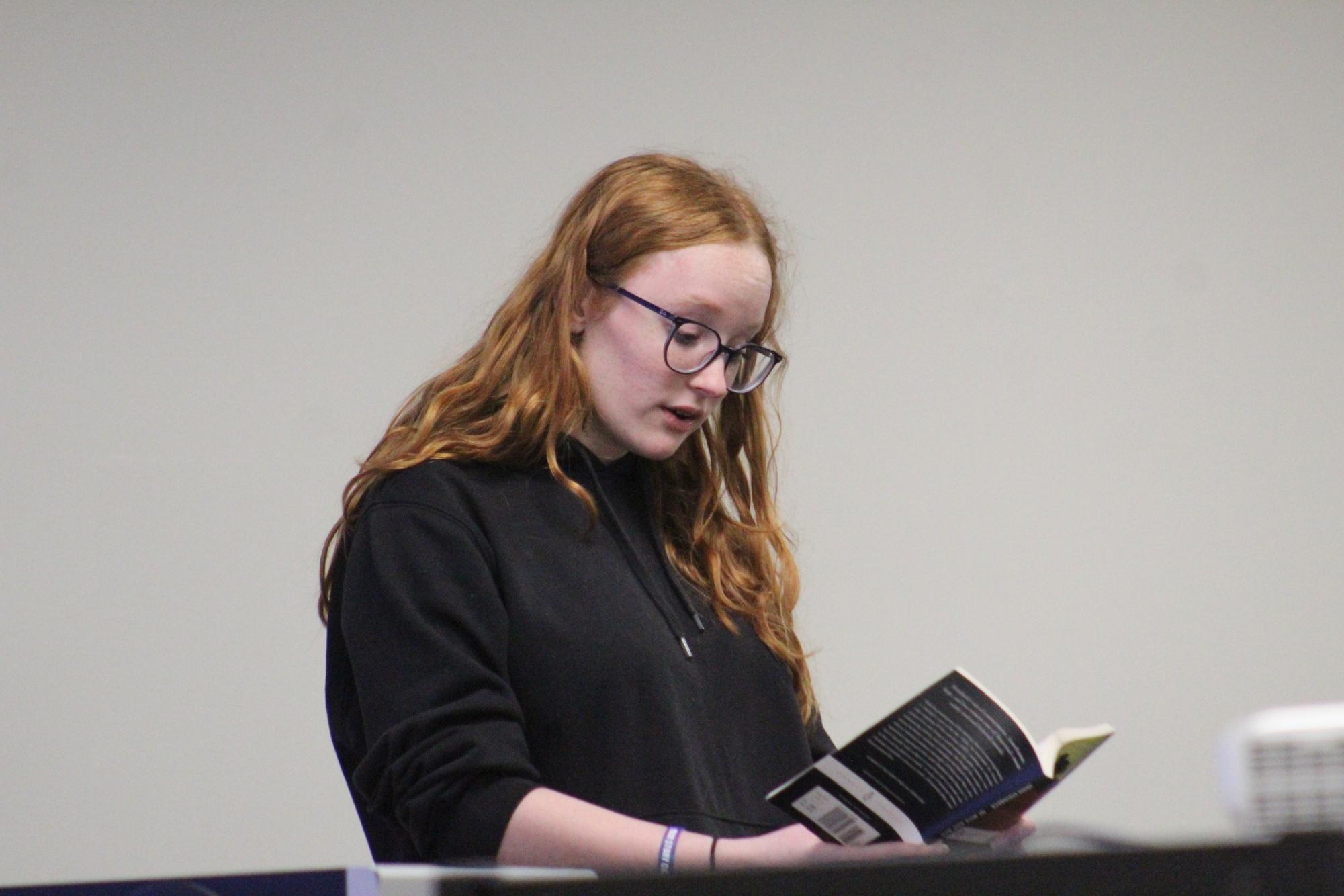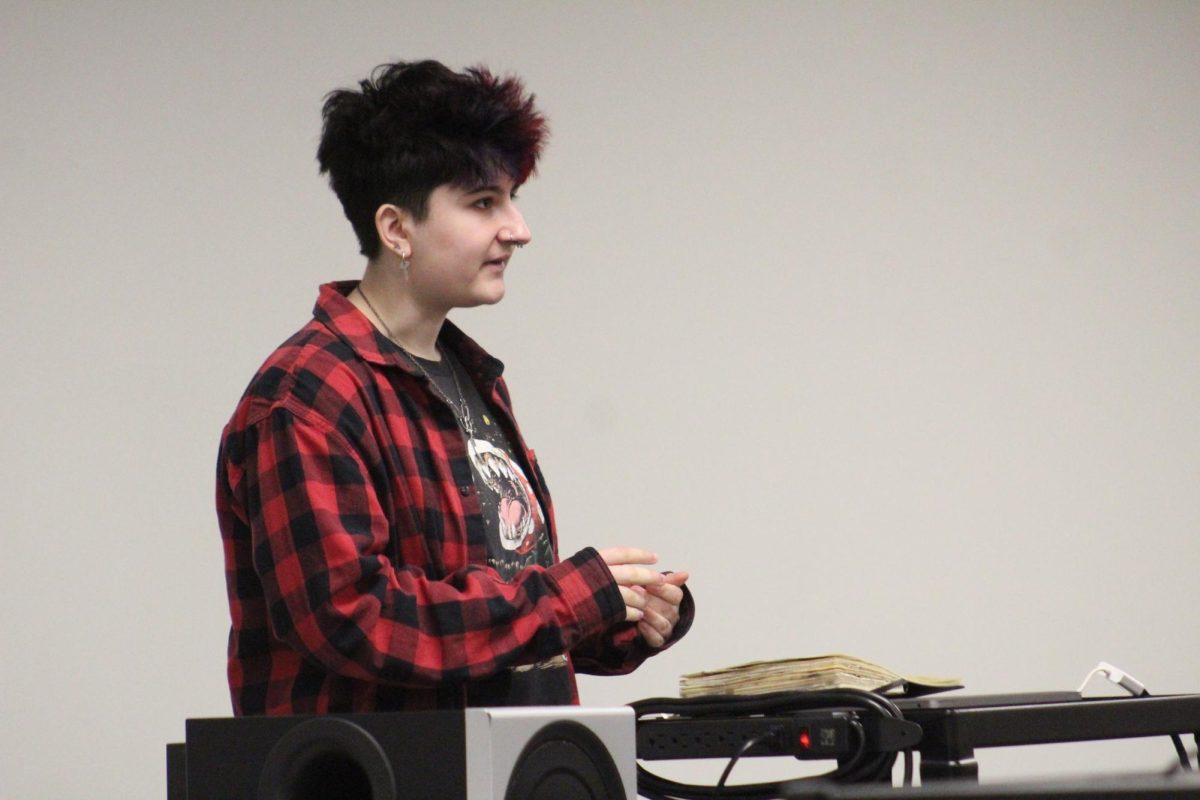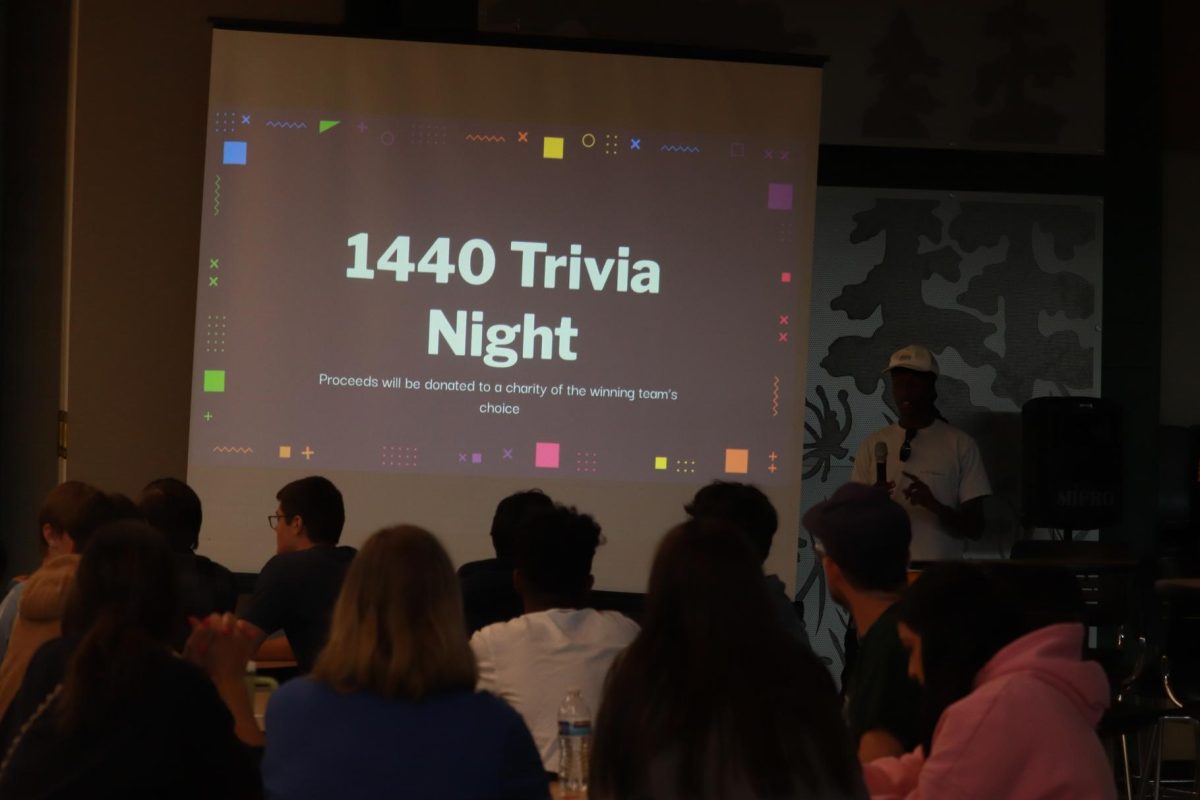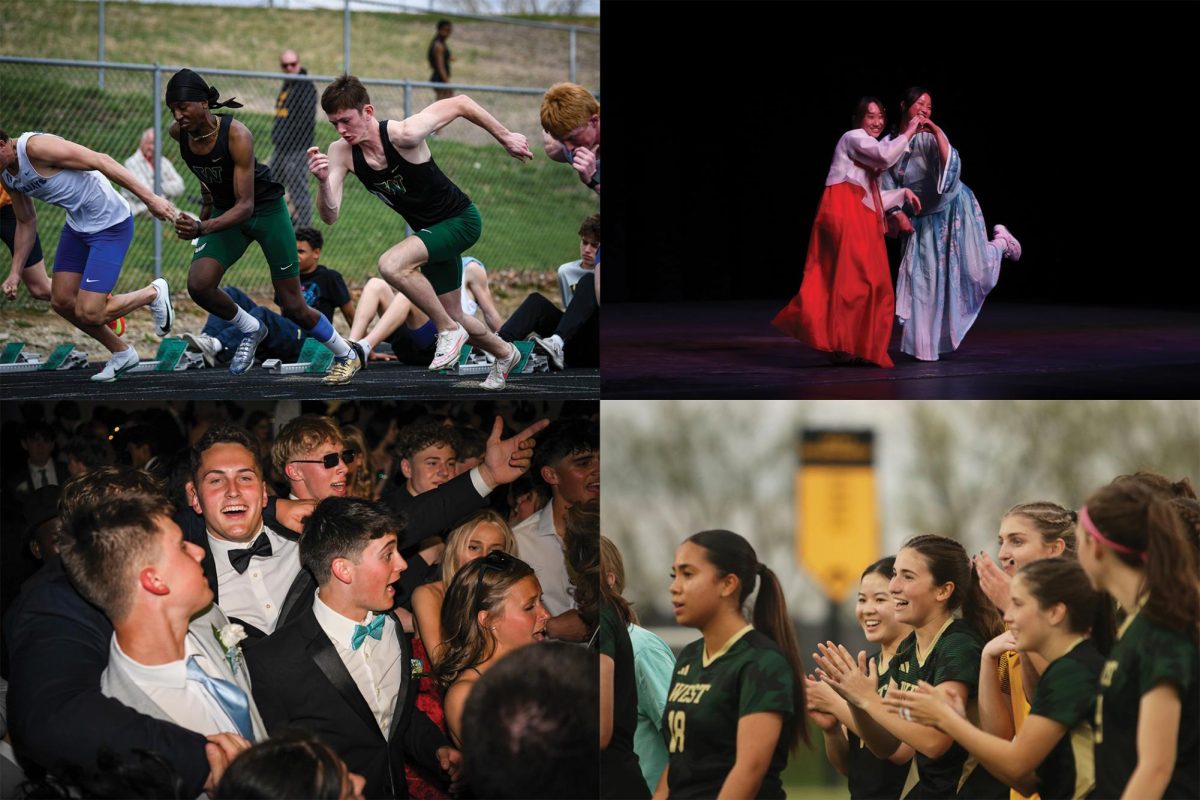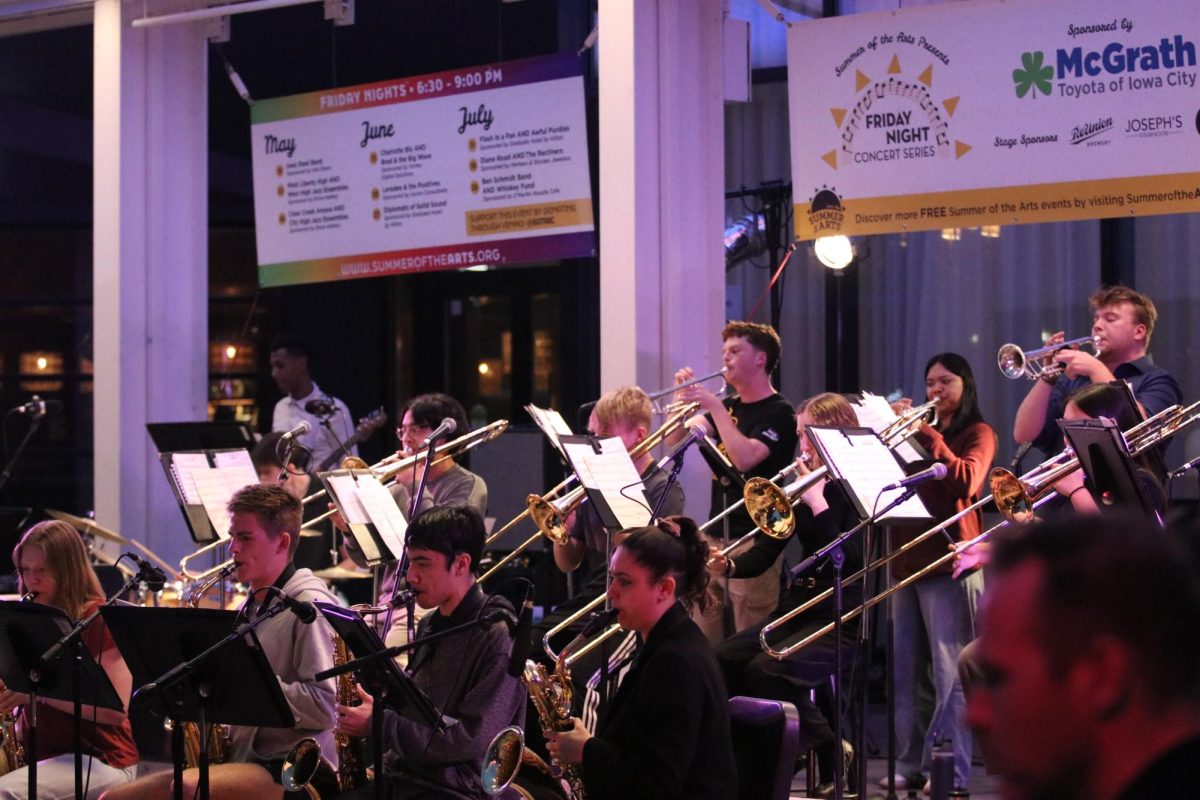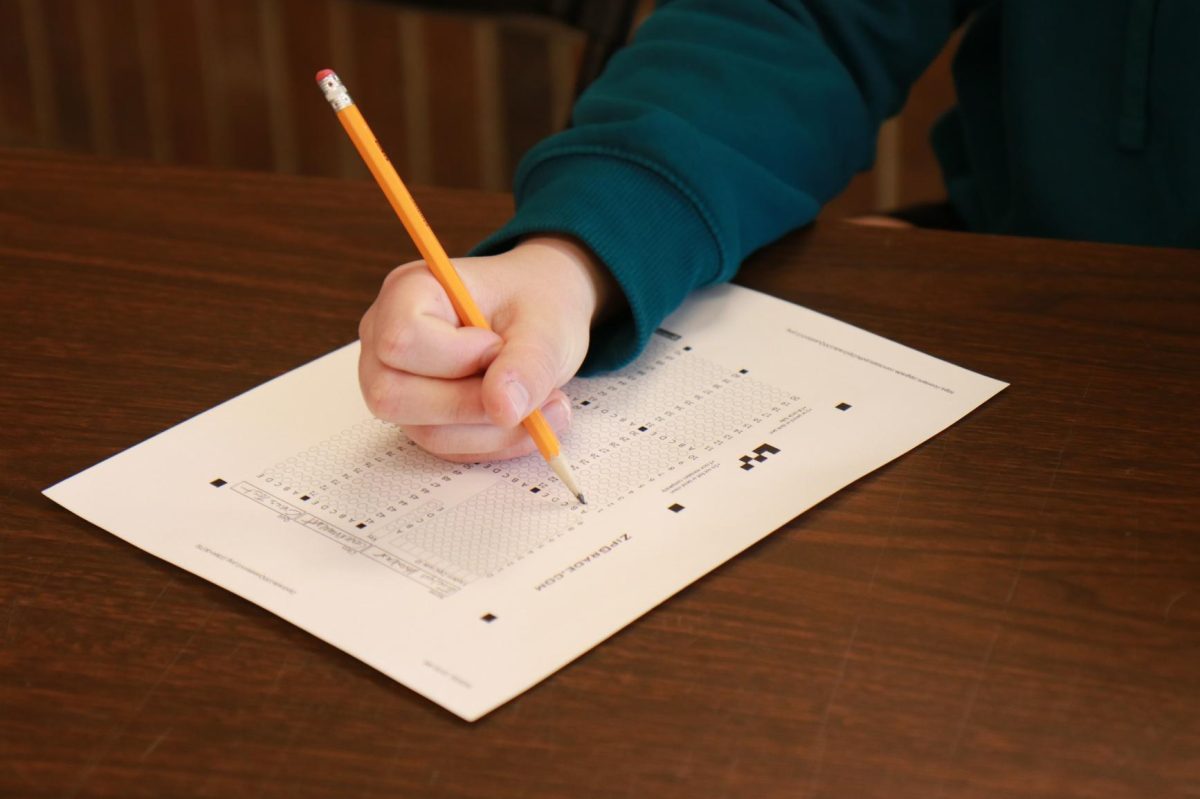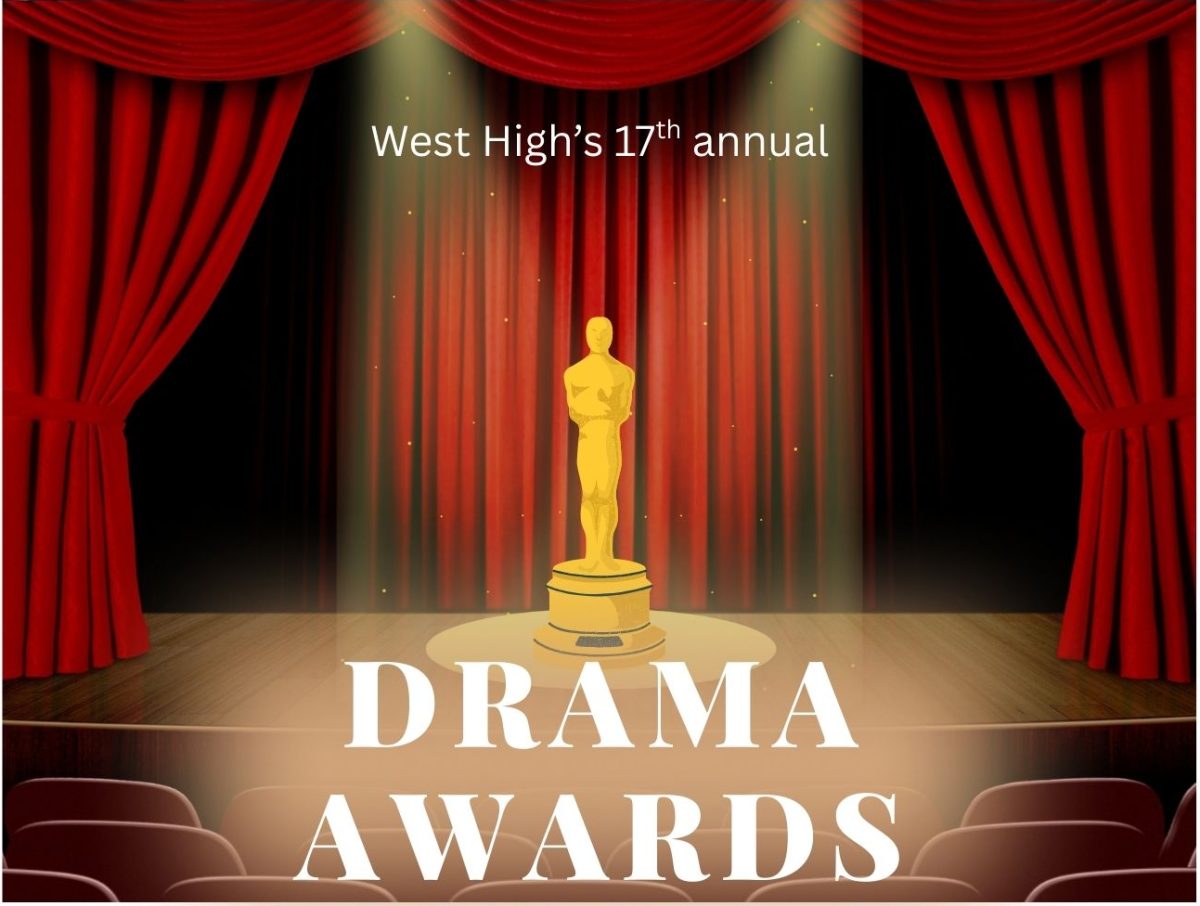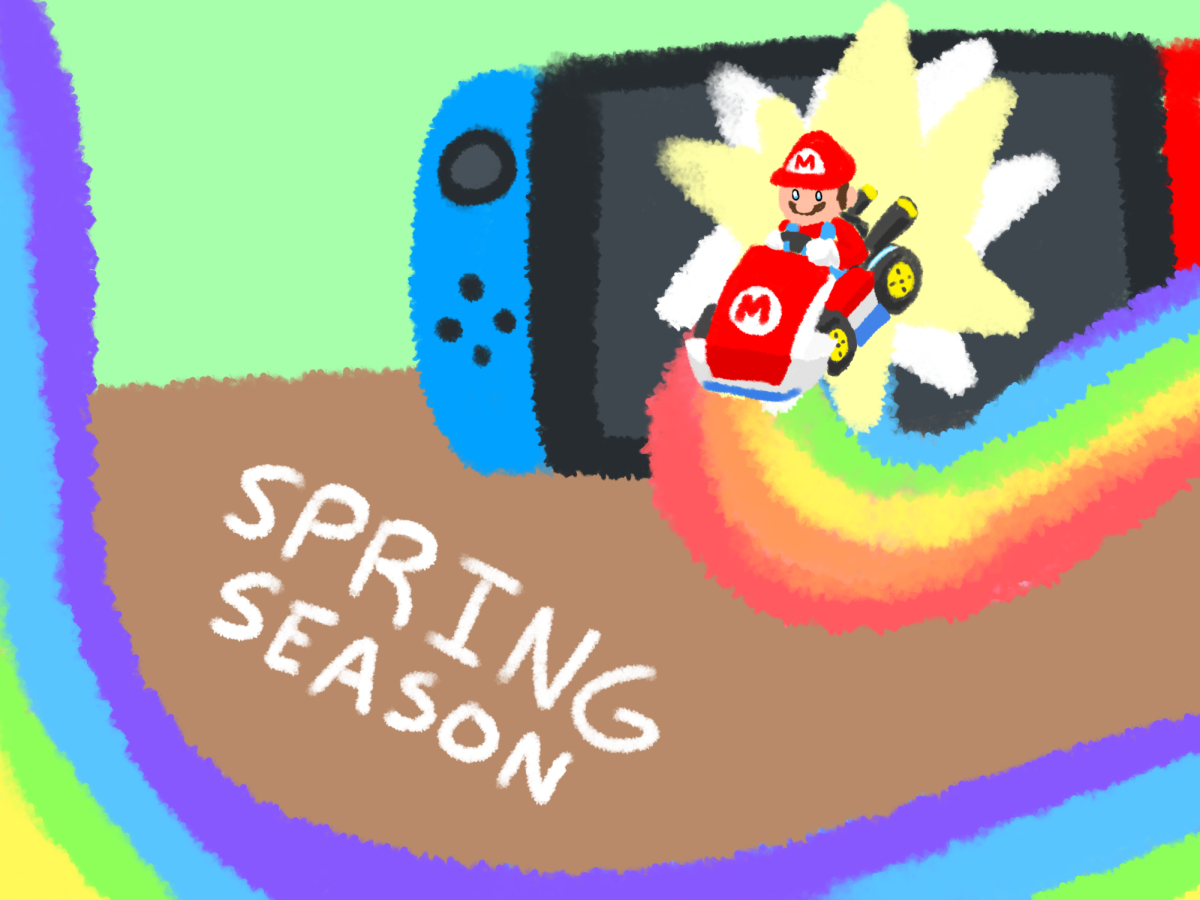West High’s Banned Book Club hosted their first open mic session at the Coralville Public Library May 3. Club and community members alike stepped up to the podium to read their works, ranging from book passages and poetry to song lyrics. Banned Book Club co-founder Alice Gooblar-Perovic ’27 strives to create opportunities for students to share writing they love with others.
“We wanted to not just talk about books and have our little community at West, but we also wanted to expand that and make a difference outside of school as well,” Gooblar-Perovic said. “We wanted to have more places where people can express themselves through literature in the community.”
One of Gooblar-Perovic’s favorite memories was seeing people gain the confidence to share their writing with the crowd, whether it be an original piece or a favorite work.
“One of my favorite memories was when some of the people that hadn’t planned to share ended up sharing anyway. It felt like a really safe space and that everyone was supporting each other,” Gooblar-Perovic said.
At the start of May, the Banned Book Club began their final book of the school year, “The Color Purple” by Alice Walker. The 1982 novel follows Celie, a young black woman navigating the complexities of abuse, sexuality and self-discovery. Set in the 1900s, the Pulitzer Prize winning book carries heavy, yet crucial, topics.
“One theme is the importance of familial relationships, and we see that a lot through the main character Celie’s relationship with her sister. It shows how much of a difference having someone that supports you can make in your life, even when you’re going through tough times,” Gooblar-Perovic said. “Also, it shows us that writing can help you in hard times. Our main character writes letters to God, and I think it shows that finding ways to express yourself even when you’re struggling can be really helpful.”
From reading novels such as “Fahrenheit 451” and “The Handmaid’s Tale” to holding a book drive and creating a library display, the Banned Book Club has achieved a lot in just its second year since its founding. However, Gooblar-Perovic believes the club’s proudest accomplishment is the welcoming and supportive community the members have created.
“I’m most proud of the community that we’ve built and the fact that every week we all come together, and we have a common goal of learning more about each other,” Gooblar-Perovic said. “A lot of times the books that we read deal with difficult stuff, but I think it’s really cool that we’ve created a space where people feel safe enough to discuss and share.”
Next year, the Banned Book Club plans to host more events, such as multiple open mics throughout the year. Additionally, they are planning on setting up another book drive in the winter and gifting the donations to public libraries in the area. Gooblar-Perovic explains how an important aspect of Banned Book Club is balancing these fun events with more serious discussions.
“We try to mix the amount of pure fun things and difficult discussions we have. Although it is important to play games, have fun and build community, it is important to know which things are serious,” Gooblar-Perovic said. “At the beginning of club, we always have a game, and we usually try to have an activity that’s more lighthearted. By the end of club, we usually try to get more into the details and have discussions about some of the more profound topics that we found in that section of the book.”
In a survey of over 1,500 educators in the U.S., 72% believe that by restricting access to banned books, there will be a significant decline in student engagement in reading, followed by a decrease in empathy, self-discovery and the ability to empathize to others. While local censorship laws, such as the banned book portion of Senate File 496, have been both challenged and reinforced numerous times, one national pattern remains clear: book bans have been rapidly increasing since 2021, and with it, thousands of books have been taken off school shelves.
“You’d be surprised how much censorship is actually happening in the United States right now, and especially in K-12 libraries all around the United States, there have been more and more books being removed,” Gooblar-Perovic said. “Books can teach you about yourself, but they can also teach you about the world around you, and it’s more important than ever to be informed and to learn about people that are unlike you. That’s what we try to do through Banned Book Club — we try to read things that are considered ‘dangerous’ or ‘risky’ to learn about different types of people, to empathize and to learn about experiences that might be different than ours.”


